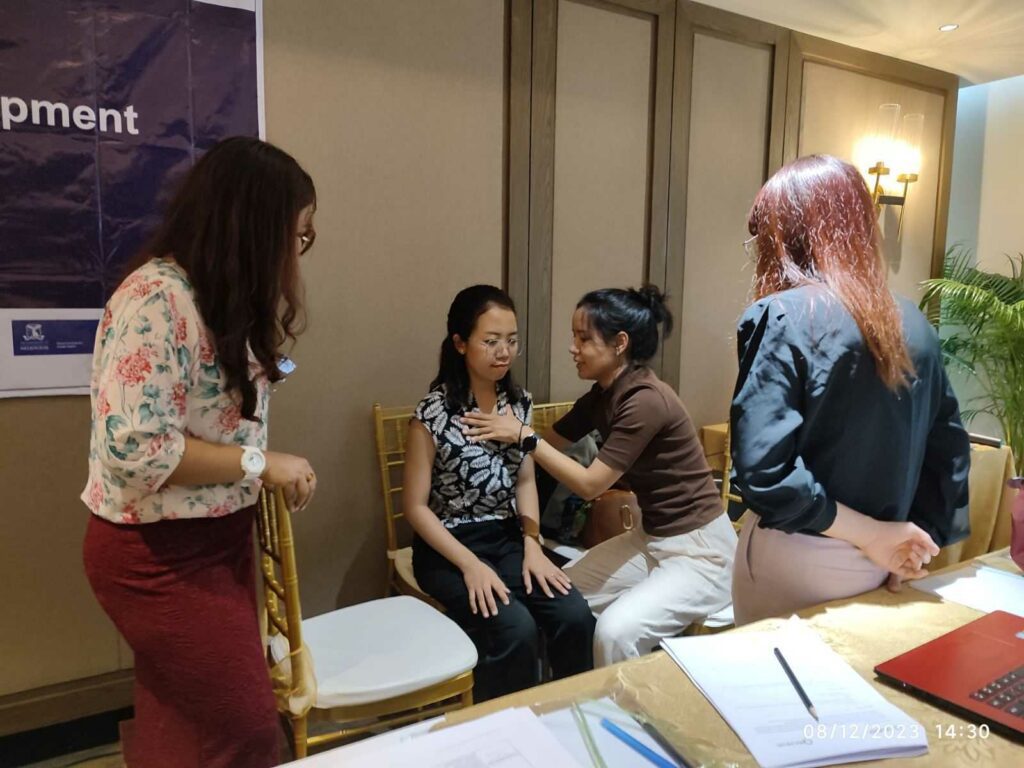
By Hsu Wai Mon Oo for ReLAB-HS
In Burma, political instability has increased the need for rehabilitation services. Currently, there are very limited opportunities for continuing professional development (CPD) to support rehabilitation professionals in responding to this need. Through the Clinical Skills Training Program, Learning, Acting, and Building for Rehabilitation in Health Systems (ReLAB-HS) has provided rehabilitation providers in Burma with the opportunity to improve their knowledge and skills to deliver quality rehabilitation services in the community.
The Clinical Skills Development Training program is a seven-month training program designed around the needs of rehabilitation professionals in Burma. A hybrid learning approach—a combination of online courses and in-person discussion and mentoring—is used to deliver effective and efficient learning. The program covers four clinical topics, which are supported by a series of mentoring sessions with international experts.
Ms. Khaing Hsu Wai, a physiotherapist working at Parami Hospital, Yangon, took part in the training program, and after applying what she learned, immediately saw results in one of her clients.
Her client, an 11-year-old female with transverse myelitis, a neurological condition caused by inflammation of the spinal cord, had significant weakness in one of her legs, causing her to walk with an uneven gait and limiting her mobility. Informed by the training and mentoring sessions, Ms. Khaing Hsu Wai created a customized treatment plan that improved her client’s condition.
“We provided her with strength training and gait training for the first few sessions but there was no significant improvement in her gait pattern,” said Ms. Khaing Hsu Wai. “After completing the gait training program and mentoring sessions by Damien Howell [international physiotherapy expert], I implemented my knowledge into clinical practice. Surprisingly, there is a significant improvement in her gait pattern. It was a total surprise!” she continued.
Her client’s gait pattern improved in many ways, increasing her strength and mobility. In addition to improving her client’s health outcome, the successful application of new skills and knowledge provided an encouraging example of the impact of CPD, motivating Ms. Khaing Hsu Wai and the other training participants.
This hybrid approach to clinical skills training has demonstrated an improvement in the clinical reasoning and technical skills of rehabilitation professionals. This improvement is particularly meaningful for developing workforce capacity through CPD activities where no other opportunities exist.